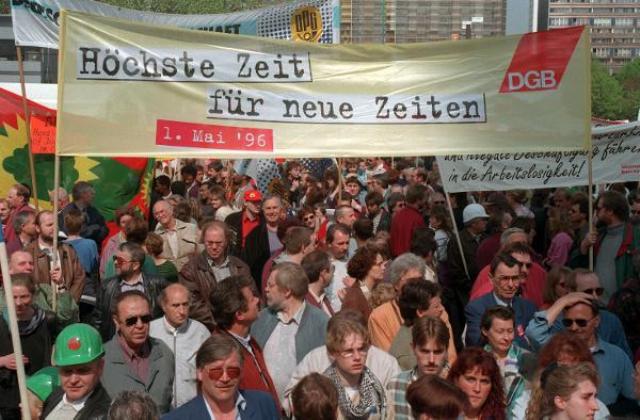Source

Source: picture-alliance / dpa (c) dpa – Fotoreport Photo: Andreas Altwein
The Confederation of German Trade Unions [Deutscher Gewerkschaftsbund or DGB] used May Day 1996 as an occasion to call for protests against unemployment and cuts in the social system. The motto was “It's high time for new times.” At the center of the call to protest was the “austerity package” proposed by the Kohl government – a bundle of individual measures to overcome Germany's economic doldrums. Among other things, the package provided for a cutback in wage-continuation in cases of illness and a loosening of the protections against wrongful dismissal. At the central DGB May Day event, which was held in Berlin for the first time since German unification, chairman Dieter Schulte addressed a crowd of 20,000. The protests reached a highpoint on June 15, 1996, when a mass demonstration organized by the unions and supported by the SPD and the Greens, among others, drew 350,000 protesters to Bonn. Nevertheless, after a failed mediation process between the Bundestag and the Bundesrat and renewed rejection in the States’ Chamber [Länderkammer], the Bundestag passed the austerity package on September 13, 1996, with a “Chancellor’s Majority.” The public debate surrounding possible cuts in the social system was so ever-present that the Gesellschaft für deutsche Sprache [German Language Association] chose Sparpaket – the German term for “austerity package” – as its word of the year in December 1996.

Source: picture-alliance / dpa (c) dpa – Fotoreport Photo: Andreas Altwein